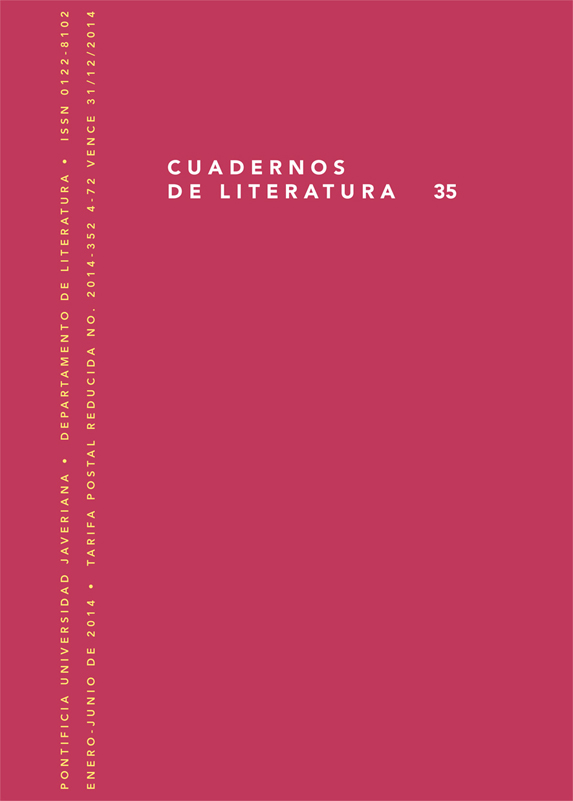Abstract
El artículo hace una reformulación de los conceptos de modernidad y de lo moderno en relación con los movimientos artísticos brasileños de la década de 1920. Las obras de los principales exponentes del modernismo brasileño, Oswald de Andrade y Mario de Andrade, se ponen en diálogo con la teoría de la deconstrucción para mostrar cómo estos dos escritores prefiguraban en su época lo dicho más tarde por los teóricos de esta línea. Además de referirse a las múltiples caras de lo moderno en Brasil a través del cambio arquitectónico en Belo Horizonte, se señalan las perspectivas sobre la modernización nacional que se dan en la obra de autores de esa región. Finalmente, el texto se centra en la lectura pionera de Silvano Santiago para revisar las fronteras que enmarcan los términos "moderno" y "modernista", y en especial en la revaluación de la figura canónica de Mario de Andrade.
Cuadernos de Literatura is registered under a Creative Commons Attribution 4.0 International Public License. Thus, this work may be reproduced, distributed, and publicly shared in digital format, as long as the names of the authors and Pontificia Universidad Javeriana are acknowledged. Others are allowed to quote, adapt, transform, auto-archive, republish, and create based on this material, for any purpose (even commercial ones), provided the authorship is duly acknowledged, a link to the original work is provided, and it is specified if changes have been made. Pontificia Universidad Javeriana does not hold the rights of published works and the authors are solely responsible for the contents of their works; they keep the moral, intellectual, privacy, and publicity rights.
Approving the intervention of the work (review, copy-editing, translation, layout) and the following outreach, are granted through an use license and not through an assignment of rights. This means the journal and Pontificia Universidad Javeriana cannot be held responsible for any ethical malpractice by the authors. As a consequence of the protection granted by the use license, the journal is not required to publish recantations or modify information already published, unless the errata stems from the editorial management process. Publishing contents in this journal does not generate royalties for contributors.


